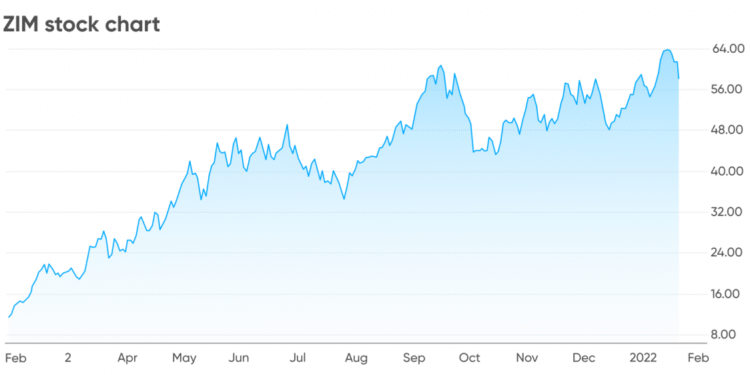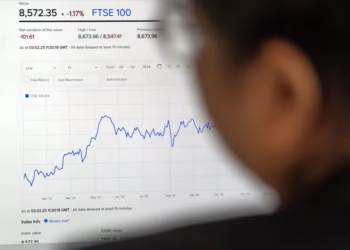Introduction to ZIM Integrated Shipping Services
ZIM Integrated Shipping Services Ltd. is a prominent global container liner shipping company that has garnered attention in recent years for its dynamic stock performance and strategic market positioning. Listed under the ticker ZIM, the company operates a fleet of vessels across major trade routes, connecting ports worldwide. As the global economy becomes increasingly interlinked through e-commerce and international trade, shipping companies like ZIM are at the heart of facilitating goods movement.
This article provides an in-depth look at ZIM stock, including the company’s financial performance, strategic positioning, dividend policy, and long-term outlook. Whether you’re a seasoned investor or just starting to explore shipping equities, understanding ZIM’s role in the global logistics landscape can offer valuable insights into both short-term gains and long-term portfolio strategy.
Overview of ZIM Integrated Shipping Services
Company History and Evolution
Founded in 1945, ZIM began as a small-scale operation to facilitate the transport of Jewish immigrants to Israel. Over the decades, it transformed into one of the leading global container shipping lines. Headquartered in Haifa, Israel, ZIM operates in over 100 countries and boasts a significant presence in major shipping corridors, including the trans-Pacific, Asia-Europe, and Latin America routes.
ZIM was historically a state-owned entity, but over time, privatization and strategic shifts enabled it to adapt more rapidly to the evolving shipping industry. In early 2021, ZIM went public on the New York Stock Exchange (NYSE), drawing attention from global investors who saw opportunities in the post-COVID-19 logistics surge.
Core Business Model
Unlike some competitors who own their fleets, ZIM largely follows an asset-light model, relying on chartered vessels. This strategy gives the company flexibility in capacity management and helps it mitigate risks associated with asset-heavy operations. ZIM focuses heavily on customer service, end-to-end logistics solutions, and digital innovations, such as real-time cargo tracking and predictive analytics for supply chain optimization.
Recent Financial Performance of ZIM Stock
Revenue Growth and Profitability
ZIM has experienced significant revenue growth in recent years, particularly during the pandemic when freight rates surged due to supply chain disruptions. For example, in 2021, the company posted record revenues and profits, driven by soaring demand for container shipping and limited vessel availability. ZIM’s EBITDA and net income both hit unprecedented highs, boosting investor confidence.
In subsequent quarters, freight rates normalized, and the company’s profitability began to align with pre-pandemic levels. However, ZIM’s strategic contracts and diversified routes helped it retain a more stable financial footing compared to many of its peers.
Dividend Policy
One standout feature that makes zim stock appealing to income-focused investors is its generous dividend policy. ZIM committed to distributing a significant portion of its net income—often up to 30-50%—to shareholders. This approach made it one of the highest-yielding stocks in the shipping sector during the pandemic-era boom.
However, dividend payouts are directly linked to profitability, which is inherently volatile in the shipping industry. Investors should remain aware that high dividend yields during peak years may not be sustainable during downcycles.
ZIM Stock: Competitive Landscape and Industry Positioning
Market Trends Affecting the Shipping Industry
The shipping industry is cyclical and highly influenced by macroeconomic conditions, fuel prices, trade policies, and geopolitical tensions. During the COVID-19 pandemic, container shortages and port congestions caused freight rates to spike, benefiting shipping firms immensely. However, the post-pandemic normalization has introduced challenges such as falling spot rates and overcapacity.
ZIM has tackled these issues through strategic fleet management, focusing on niche markets, and forming alliances like THE Alliance—a major global shipping partnership—to optimize routes and operational efficiency.
Key Competitors
ZIM competes with global giants like Maersk, MSC, COSCO, and Hapag-Lloyd. While these players operate under different business models—some owning massive fleets—ZIM distinguishes itself through agility, customer-centricity, and technological integration. Its asset-light strategy allows it to be more adaptive to demand fluctuations, albeit at the cost of long-term capital asset accumulation.
Technological Innovation and Sustainability
Embracing Digital Transformation
ZIM has invested heavily in digital tools to enhance customer experience and internal efficiencies. Its offerings include API integrations for large clients, real-time tracking, and automated scheduling. These tools not only improve service quality but also help in minimizing errors and delays—a crucial factor in logistics.
Environmental Initiatives
Shipping contributes nearly 3% of global carbon emissions. Recognizing this, ZIM has committed to various green initiatives. These include using low-sulfur fuel, retrofitting vessels with energy-efficient systems, and exploring alternative fuels like ammonia and hydrogen. ZIM’s commitment to sustainability not only aligns with regulatory pressures but also appeals to ESG-focused investors.
Risks and Volatility Factors for ZIM Stock
Economic Slowdowns
One of the primary risks associated with zim stock is its exposure to global economic cycles. Economic slowdowns typically result in reduced trade volumes, lower demand for shipping, and falling freight rates. In such scenarios, even a well-managed company like ZIM may see significant drops in revenue and profits.
Geopolitical Risks
Given its global footprint, ZIM is vulnerable to geopolitical events such as trade wars, port strikes, sanctions, and military conflicts. For instance, its strong presence in Israeli ports could be a risk factor during regional tensions.
Regulatory and Environmental Risks
The shipping industry is under increasing scrutiny for its environmental impact. Future regulations on emissions and fuel standards may necessitate significant investments in fleet upgrades, potentially squeezing profit margins.
Analyst Opinions and Market Sentiment
Institutional Holdings
ZIM has attracted a mix of institutional investors, hedge funds, and retail investors. Many institutional holders view it as a short-to-medium-term play on shipping rates and dividends. However, long-term bullishness is typically tempered by the industry’s inherent volatility.
Buy or Sell?
Analysts are generally split when it comes to recommending ZIM. Bullish analysts cite the company’s high dividend yield, strategic agility, and innovative approach. On the bearish side, concerns revolve around declining freight rates and future earnings pressure. As of recent months, some analysts have placed ZIM in the “Hold” category, awaiting clarity on freight market trends.
Long-Term Outlook for ZIM Stock
Despite short-term volatility, ZIM’s strategic positioning offers some compelling long-term advantages. Its focus on digital transformation, customer-centric models, and environmental initiatives make it a modern and competitive shipping company. Moreover, the global trend towards nearshoring and diversification of supply chains may create new opportunities for agile operators like ZIM.
If the company can maintain profitability during industry downturns, continue offering attractive dividends, and adapt to environmental regulations, zim stock could remain a strong option in the transport and logistics sector.
However, investors should weigh its performance within the broader shipping cycle and consider diversification to balance potential risks.
Is ZIM Stock a Buy in 2025?
As of 2025, ZIM stock trades at a valuation that reflects the ongoing normalization of the shipping sector. With earnings falling from pandemic highs and dividends potentially adjusting downward, the stock no longer carries the same explosive momentum seen in 2021–2022. That said, ZIM remains financially robust and is still distributing dividends, albeit at a more moderate pace.
Investors with a high tolerance for volatility and a focus on dividend income may still find ZIM an attractive option. Conversely, those seeking growth or stability may want to consider other sectors unless freight markets show signs of strong recovery.
Key factors to monitor in 2025 include:
-
Freight rate trends across major shipping lanes
-
ZIM’s ability to maintain cost efficiency
-
Global trade policy changes and economic recovery
-
Environmental compliance investments and ROI
Conclusion: Final Thoughts on ZIM Stock
In the highly cyclical and complex world of global shipping, ZIM Integrated Shipping Services stands out for its adaptability, technological investment, and shareholder-friendly dividend policy. While the pandemic-era boom has faded, ZIM continues to show resilience and a willingness to innovate in the face of changing market conditions.
ZIM stock represents a unique opportunity for investors seeking exposure to international trade and the logistics economy. However, it requires careful monitoring due to external volatility and sector-specific risks. Balancing its high dividend potential with market unpredictability will be key to making informed investment decisions.
Whether you view ZIM as a dividend play, a value stock, or a hedge against inflation in transport costs, one thing is clear: it is a company that has proven its ability to navigate both calm and stormy seas.















